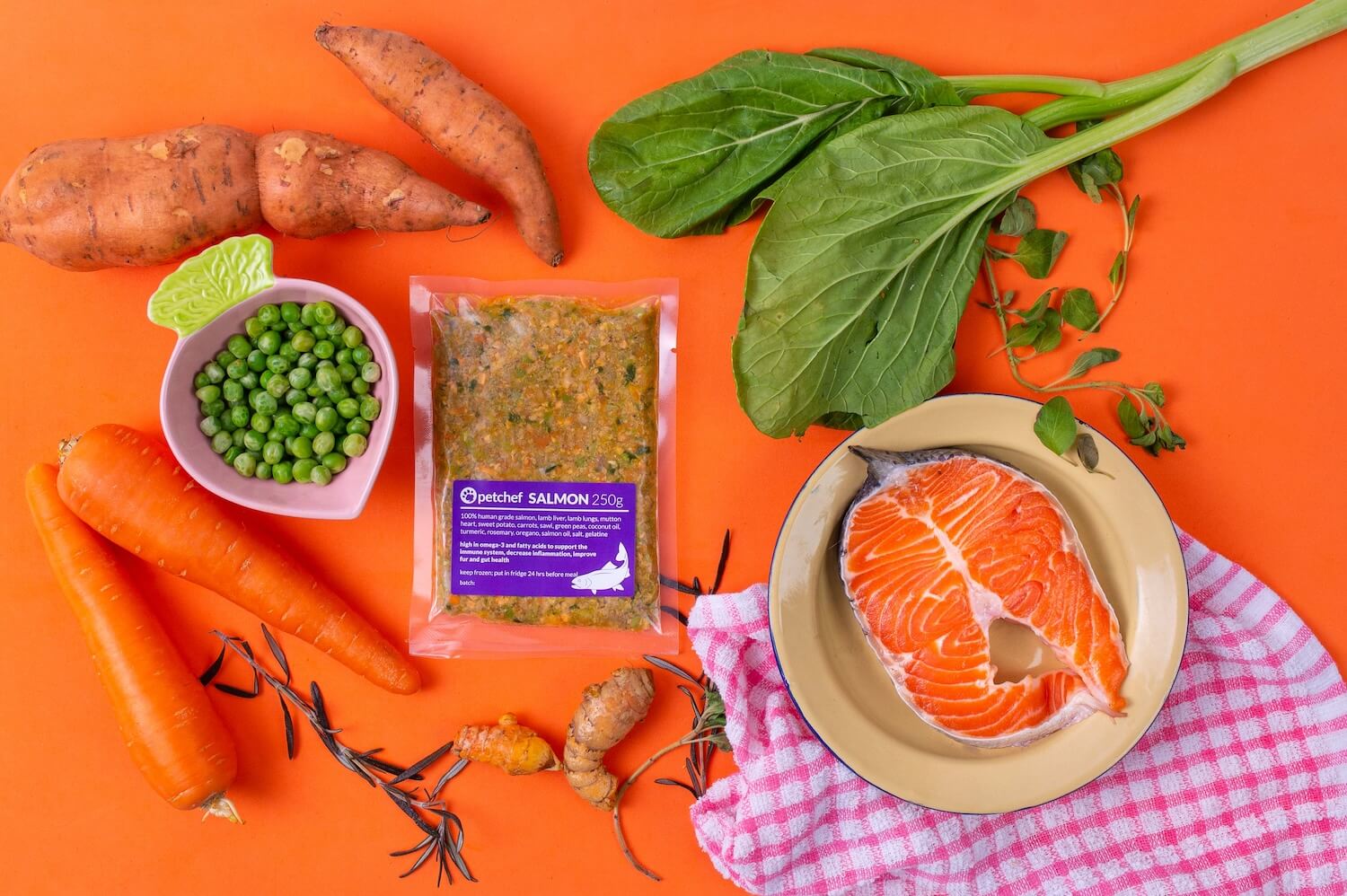In most Asian cultures, we’d try our best to use every part of the animal be it in dishes or traditional remedies. For example, we’d have the usual pork meat cuts plus its intestines, ears, stomachs, liver and even blood in a regular bowl of bakuteh.
Growing up, we’d probably had our fair share of elders and parents convincing us to eat that slab of chicken or pork liver because, “it’s good for you”. There are even traditional myths that claim eating certain organs is good for our own corresponding organs (eg. pigs liver is good for your liver or fish eyes are good for your eyesight).
Although these beliefs may be backed by traditional beliefs and superstitions, they’re not inherently false. Quality animal organs are indeed good for you as they are an excellent source of iron and protein while being packed with nutrients, such as vitamin B12 and folate.
Benefits Of Organ Meat For Dogs
There’s a reason why dog food packagings would usually advertise how densely packed it is with liver and other organs. Reason being, they’re much richer in vitamins, minerals and trace minerals than muscle meat.
Organ meats are a great source of:
- Protein: An essential nutrient for both dogs and cats that aids muscle growth, tissue repair, and immune functions. It’s also an important source of energy, amino acids and for transporting oxygen in blood.
- Fat: A source of essential fatty acids and energy.
- Vitamins: Both fat-soluble and water-soluble vitamins are critical for the metabolism of protein, carbohydrate and fat as well as other functions such as bone formation, and vision health.
- Minerals and trace-minerals: These are critical to various functions in the body in ensuring overall health.
Since fresh organs are sold at relatively lower prices than normal meats, organs could be an economically friendly way of introducing more nutrients into your furkids diet.
Choosing The Right Organs
It’s fairly simple to choose organs.
- Source it from your trusted butcher (or your go-to uncle/auntie at the pasar)
- Make sure it’s firm and not discoloured, smelly or slimy
- Best if the animals are grass-fed or raised in a farm
- Avoid organs from wild animals as it may be infected with parasites or toxins that could potentially harm your furkid
Generally, all animal organs are safe for your furkids consumption but each part contains various levels of nutrients. The total amount of organs in a meal should make up to 25% of a dog’s diet but no single organ should account for more than 5-10%.
Here are some organs that you could add to their diet.
1. Liver
One of the most commonly-fed and readily available organs. Although it’s a detoxification organ, it does not store toxins.
Livers contain 10-100 times the amount of nutrients of muscle meat. It’s rich in vitamin A and Bs, iron, protein, phosphorus, copper, niacin as well as healthy fats like omega 3s and omega 6s.
2. Heart
The harder the muscle works, the higher the content of an amino acid called taurine. That being said, turkey hearts, chicken hearts, and duck hearts are exceptionally high in taurine. Feeding your dog a balanced diet that includes taurine could help reduce the risk of succumbing to a disease called dilated cardiomyopathy.
Besides being a source of iron, zinc, selenium and B vitamins, it also is the best food source of CoQ10, an enzyme that regulates energy and prevents oxidative stress.
3. Kidney
Also another commonly known organ included in raw or fresh food diets. It’s rich in selenium and a wide variety of vitamins. Beef kidney in particular is a better source of vitamin D in comparison to other organs.
4. Chicken Gizzards
To humans, they may be delicious deep fried snacks. But to dogs, this small organ is high in protein and contains iron, minerals, and vitamins C, E and B. They contain glucosamine, which can help with cartilage and arthritis problems. However, they are also high in cholesterol and therefore should be fed in moderation.
5. Pancreas
May not contain as high a level of vitamins and minerals as other organs but it contains digestive enzymes which are great for dogs with a sensitive digestive system.
6. Brain
With its 1:1 ratio of proteins to fats, brain could be a source of DHA and fatty acids for dogs who cannot consume fish or shellfish ingredients.
Working Organs Into Your Dog’s Diet
Some dogs (and humans) may find the taste and texture of organ meats difficult to enjoy at first. If your pet doesn’t seem to like it, you can start by adding smaller amounts of ground organ meats to their daily meals and gradually increase the amount.
Do ensure that the organs are cooked with no additives and seasonings as they’re harmful for pets.
-//-
Ickiness aside, organs are a great source of nutrition for our furkids. In fact, as they’re highly nutritious, it should be fed in moderation and not make up more than 25% of their total diet.
Here at Petchef, we truly believe in putting the best ingredients in our pets’ food bowls for a healthy diet. Our human grade pet meals contain a balanced mix of meats and organs for proteins, as well as pet-safe vegetables, herbs and oils.
Should you need a more personalised guide to the amount of organs and preparation methods for your furkid, our Petchef Advisors are available to advise you.
PS: We’ve also got some free samples of human grade pet meals for your furkid (and you) to try as well!
Feature Image Credit: Navy Corgi





















